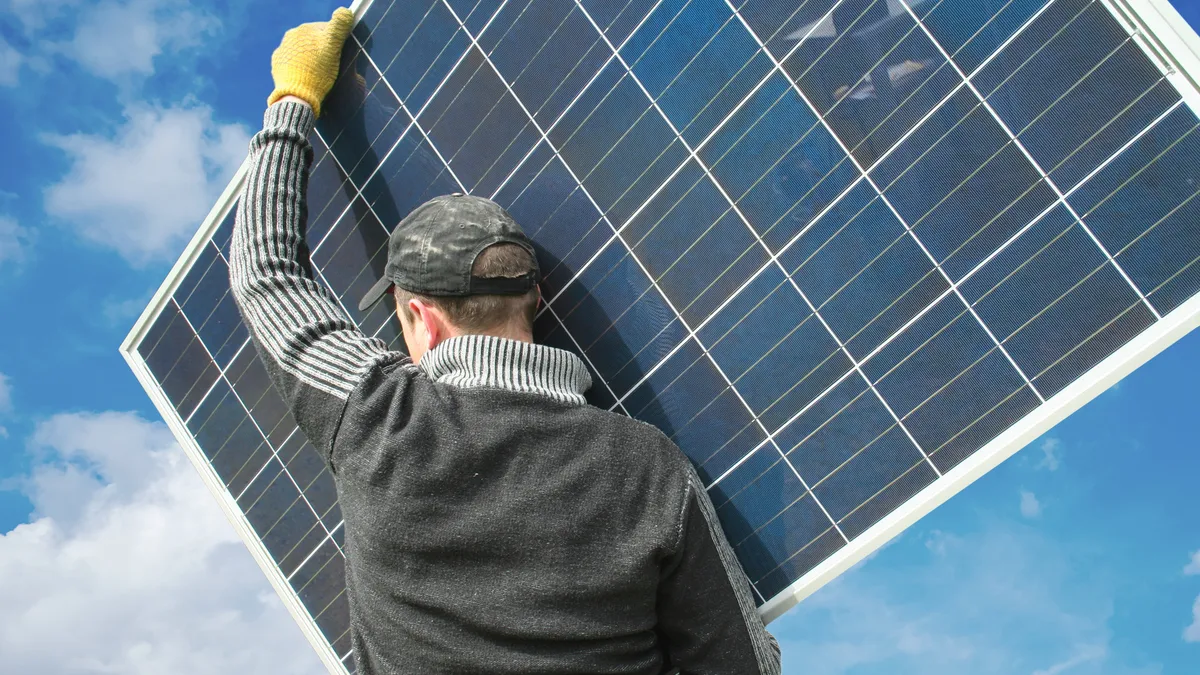Dive Brief:
- Michigan's DTE Energy and Consumers Energy could expand their solar programs without impacting ratepayers, according to the state Public Service Commission Solar Working Group report.
- The report considers the price impact of several scenarios, including the current net metering scheme, a value of solar scheme, and a combination. Each pays customers 15 cents for every KWhr generated. A combined scheme made little difference to customer bills, said report authors.
- DTE Energy has a fee for rooftop solar generation customers to pay the utility for maintenance and supply when the installation is not functioning, while Consumer Energy does not.
Dive Insight:
“Our plans for the future include the addition of energy from renewable sources such as wind, solar and anaerobic digesters. We took part in a healthy conversation about options for solar energy, and we will look carefully at the options laid out in this report. We are committed to delivering power in a sustainable way for our state, while also being mindful of the public’s expectations that we do so reliably and affordably,” Consumer Energy spokesman Brian Wheeler said.
Meanwhile, DTE Energy spokesman Scott Simmons said that there is a reason why solar makes up only 2% of the company's portfolio: It is more expensive than wind. "The bottom line is: We oppose extending any subsidies for solar," he said.
The impetus for the report came from the upcoming expiration of both utilities' solar pilot schemes, which offered subsidies to customers who wanted to install rooftop solar as a means of self-generation. However, the state PSC found that many more people than were eligible wanted to participate in the schemes, demonstrating consumer hunger for solar.
Even if further subsidies aren't extended, the fees collected by DTE (and until recently Consumer Energy also) offer an alternative source of backing. However, Simons of DTE said that that money was to be used for wind generation, and not solar.
DTE's attitude is certainly out of kilter with much of the rest of the country, where solar is taking center stage as the new fuel to watch. Michigan Land Use Institute senior energy specialist Jim Dulzo finds this reticence puzzling. "While MPSC staff cannot legally, at this point, order the utilities to adopt any of the options listed in the report for developing more rooftop solar, a careful reading reveals that the agency sees little, if any, technical or financial reason preventing the state’s two biggest monopolies from doing so.”













